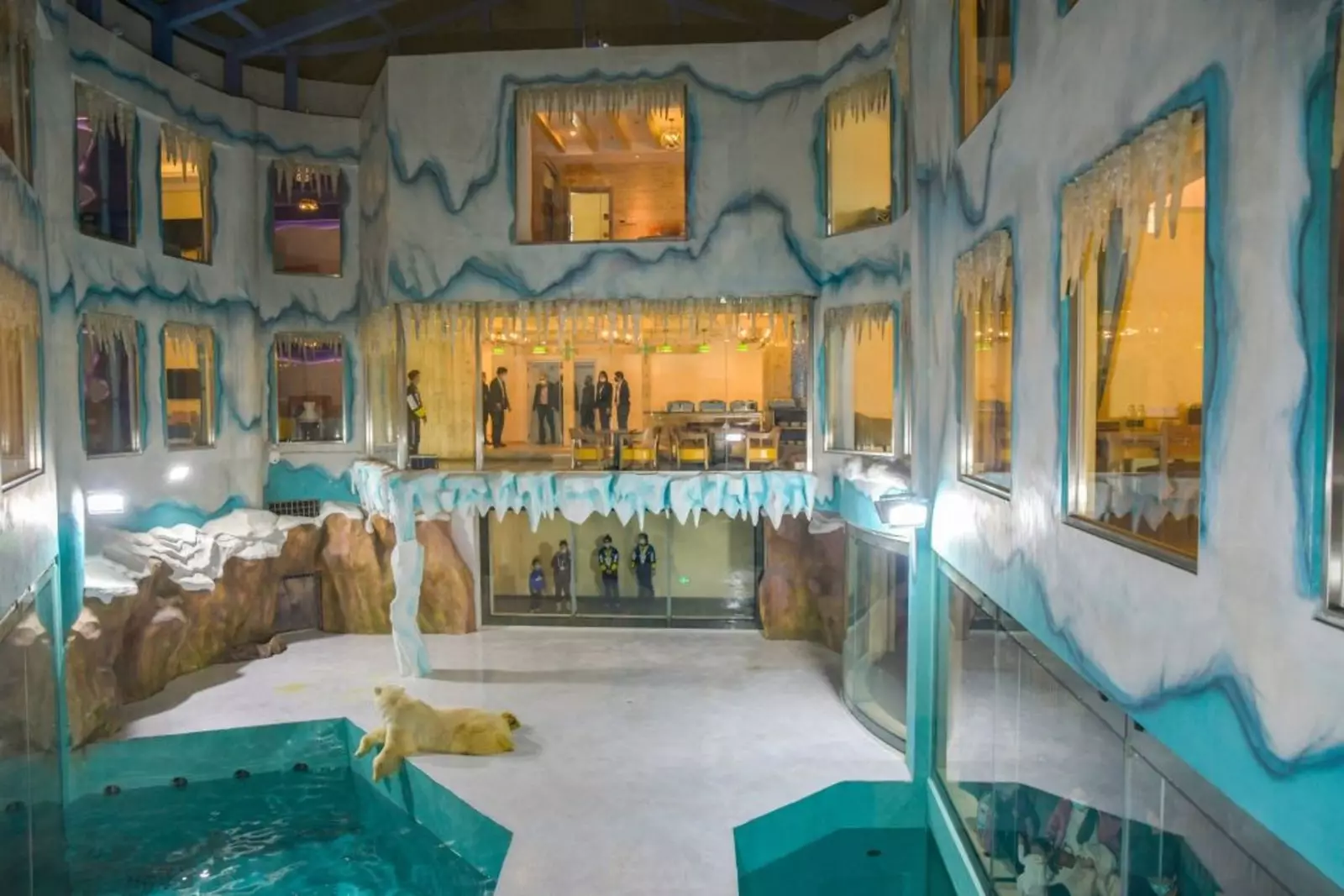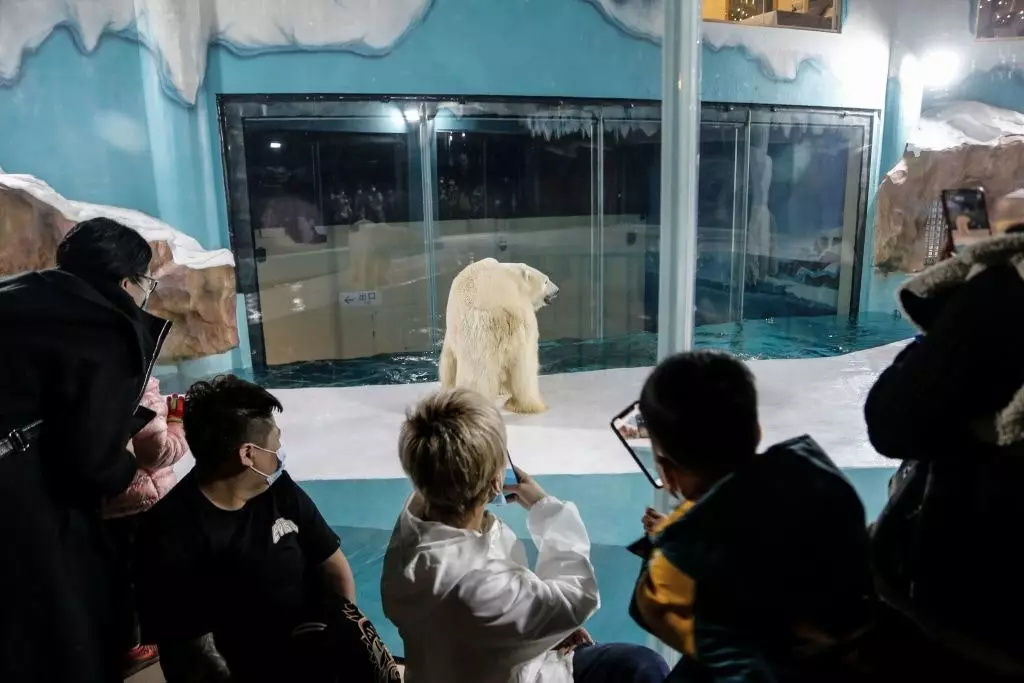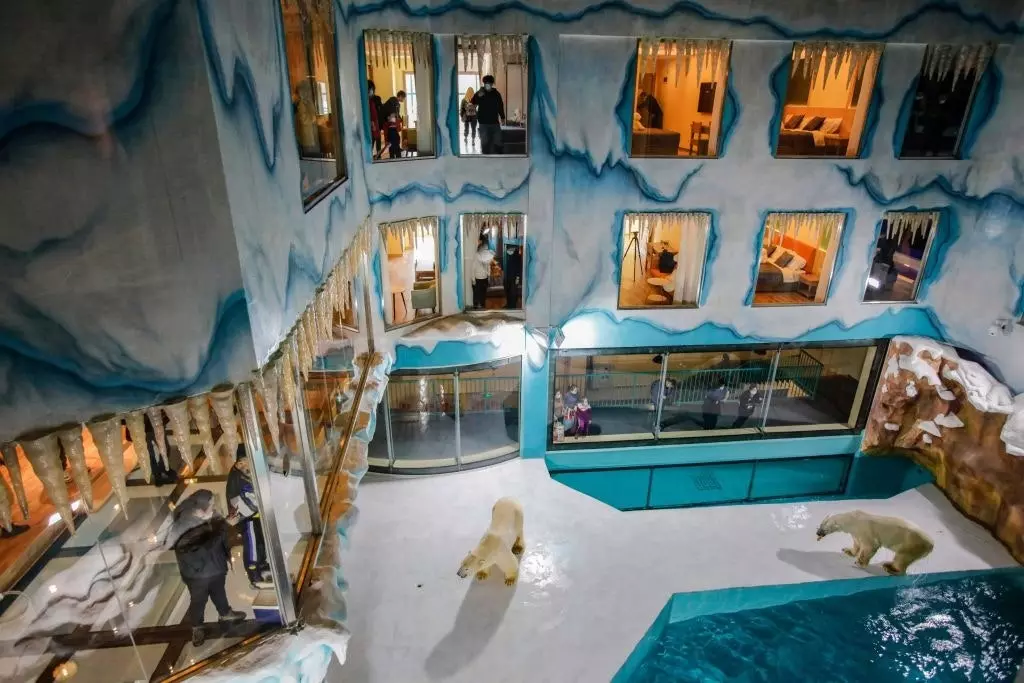
The Polar Bear Hotel.
Perhaps the only possible explanation for the fact that China has allowed The Polar Bear Hotel be the lack of tourism (due to the Coronavirus) in its big cities. And that this is a claim, somewhat effective in the short term, to continue feeding a capitalist industry.
The truth is that the largest city in Heilongjiang, harbin (known for its ice festival), has opened right next to the theme park and zoo Harbin Polar Land , a hotel that promises its guests to see polar bears locked up 24 hours a day. From the 21 rooms of the hotel you can see the life of these two animals trapped between glass walls . And all for a price ranging from 1,888 to 2,288 yuan (about 300 euros).
The hotel has ensured that the bears not only live in this space but also have the possibility of moving to other outdoor areas. However, the international press and animal organizations have already pointed the finger at them, especially after China to ban wildlife consumption by law . The possible spread of COVID-19 from an animal market in Wuhan would have caused the country to take a step in favor of animals, although we see that nothing is what it seems.

If you thought being confined was a horrible thing, wait until you see this.
The country has a pending account with the exhibition of wild animals in shopping centers , hotels, etc One of the latest campaigns for the release of the "saddest bear in the world" ended relatively well thanks to public pressure from hundreds of people and organizations.
The polar bear, called Pizza, lived in deplorable conditions in a shopping center in guangzhou and, finally, he was managed to return with his mother to the aquarium of Tianjin Haichang Polar Ocean World . So says Wildlife Watch, an investigative reporting project between the National Geographic Society and National Geographic Partners that focuses on wildlife crime and exploitation.
A HOTEL OR A PRISON
“Polar bears belong to the Arctic, no to zoos or glass aquarium boxes , and certainly not to hotels. The greedy and exploitative aquarium industry, which is out of place in today's increasingly conscious world, is based on the suffering of intelligent social beings who are denied all that is natural and important to them. Polar bears are active up to 18 hours a day in the wild. , roaming ranges that can span thousands of miles, where they enjoy real life. PETA urges customers to stay away from this hotel and any other establishments that profit from animal misery ”, emphasizes Jason Baker, senior vice president of PETA Asia.
At the moment PETA ASIA affirms to Traveler.es not having taken legal action against Polar Bear Hotel , although they do claim to be focusing on public education. The hotel has caused widespread public outrage in China, showing that educating potential consumers on these issues is key.
“PETA Asia has offered to pay for the bears to be moved from their hotel in China to a facility that mimics their natural environment. , where they will never be used for human entertainment again,” explains Elisa Allen, the director of PETA.
Currently, about 300 polar bears live in captivity in the world , according to PETA data. Neither a hotel nor a shopping center are good places for species like the polar bear to develop their instincts.
“Animals are not meant to live in cages . In the Arctic they roam thousands of kilometers, looking for food and defending their territory. Researchers from the University of Oxford cited the species as one of those that do particularly poorly in captivity, which is not surprising given that such enclosures are 1 million times smaller than their natural range. Animals are not ours to use for entertainment ”, adds the director of PETA.
But her reflection goes further, she wonders what is the use of saving the species if we cannot guarantee that it can live in its habitat due to climate change. Investing in preserving their natural spaces and a vegan lifestyle is what we can do to help them.

If you don't like this, never encourage it.
